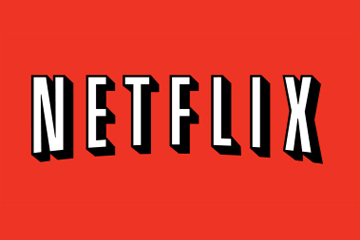Make an Argument
Is Netflix’s first original programming acquisition a big deal?
By Eric Hughes
March 23, 2011
BoxOfficeProphets.com

House of Cards will be the online video rental service’s first foray into original programming, and is a sign that the Internet giant really does reinvent itself about as often as Madonna. I mean, rental-by-mail begat on-demand video streaming, which, maybe, will begat a spankin’ new programming arm that, if successful, will be largely unlike anything we’ve seen from a production company not already indebted to television.
Is this story more important than the media, from my understanding, made it out to be? Let’s discuss some points:
1. I think the Kevin Spacey-David Fincher mash up is huge. Having two “names” this early is a plus, and will bode very well for whoever else may circle the project down the pike. (Oh, an opportunity to work alongside Kevin Spacey? Please and thank you).
And Spacey isn’t necessarily that hard up for work, which makes his involvement in the series all the more surprising. Granted, I felt the same way about Dustin Hoffman when he signed on to star in an HBO drama about horse racing enthusiasts. (I then realized: “Well, Next to Little Fockers, Dustin’s been voicing characters for Kung Fu Panda and The Tale of Despereaux, so...”)
But Spacey? He’s still got room to work with in Hollywood, and is about a generation’s worth of years behind Hoffman. What the hang, then, is he doing on the small screen?
[Side note: Is it fair to call House of Cards a television series? It’s modeled like one, largely because Netflix already committed itself to 26 “episodes.” Yet at no time will the show be viewed on, well, television. Except, of course, when Netflix subscribers rent House of Cards through Netflix’s rent-by-mail arm and then fire up their Blu-rays or DVD players].
With that said, maybe it isn’t fair to bust on Spacey’s chops. Maybe it isn’t fair to bust on anyone working in television anymore considering the interconnectedness between it and the movies these days. Perhaps Spacey is on the cusp of something really huge, and will pause to laugh at commentators much like myself who scoffed at him (in a pretty way!) for issuing a fair amount of confidence in a project like House of Cards.
2. Netflix outdid HBO and AMC for the rights to House of Cards. Big, yeah? Depends on how you read it. One on end, you have a company literally unknown for original programming duking it out with the likes of AMC and HBO… and winning. Think about that.
AMC, of course, is the channel behind three total winners (Mad Men, Breaking Bad and The Walking Dead) in four tries. And HBO, please, needs little to no explaining. Netflix, of course, is a Goliath in its own right, but I’d like to think in terms of television, the company faced an uphill battle this round.
So why does the enormity of this bidding war depend on how it’s read? Well, like any business, it’s about following the money. I don’t have the figures to support what Media Rights Capital (MRC) fetched for this one, but in Netflix, at least, the young company was issued a promise of two, 13-episode seasons long before a pilot was shot. Long before, even, a cast was fleshed out. To have 26 episodes guaranteed this early in the game might be unheard of.
For this, I think it comes down to Netflix striking up a significant vote of confidence - let alone some serious green – when HBO and AMC kept things traditional. Netflix homered; HBO and AMC maybe slid in safely to first on a bunt meant only to advance the runner.
3. Is the enormity of the Netflix-MRC deal too early to call? I’d like to think so - if only in the event that House of Cards fails, and we’re left figuring out whether such a distribution model would work.
Would financial disappointment silence Netflix’s lust for original programming? Hardly. No matter the outcome, I’d anticipate Netflix buying up more projects until one (or many more) strike a chord with audiences. Certainly the giant has the money to do so - so long as Netflix doesn’t do what Summit Entertainment has been doing with its pile of Twilight cash, which is to deliver movies like Furry Vengeance without batting an eyelash.
So what we’ve learned here is that the scale of the House of Cards story isn’t based on its future level of success. In fact, I think the story has already happened, and for that, I would’ve expected news outlets to have more to say about it. I mean, an online entity seeks to spin the television model on its head, and yet coverage on the matter seemed pretty ho hum. But then the last time that a company tried revolutionizing television, we got MyNetworkTV in return. And its take on primetime programming lasted all of six months.